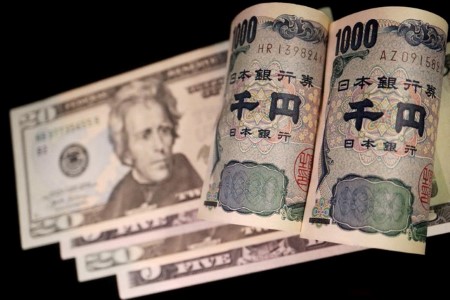




Policy Rate Updates: BSP outlook — cloudy with a chance of rate cut
 DOWNLOAD
DOWNLOAD

January Economic Update: Growth slows, prices rise
 DOWNLOAD
DOWNLOAD

Inflation Update: Up, up, and away?
 DOWNLOAD
DOWNLOAD


US recap: Dollar resumes rise vs EUR, JPY before key US data

Sept 12 – The dollar index rose 0.14% as the previous session’s yen and yuan-led setback faded and the focus shifted to US CPI and retail sales reports on Wednesday and Thursday that could keep a November Fed hike on the table.
Particular focus will be on whether core CPI again rises just 0.2% from the month before, as overall inflation is forecast up 0.6%, led by higher energy prices that have persisted this month and could be harder for the Fed to overlook if they lift inflation expectations.
However, there are some early indications small businesses and consumers are starting to feel the heat from higher rates and tighter credit, as pandemic-related savings dwindle and credit card balances surge.
USD/JPY rose 0.35%, reversing Monday’s sharp slide prompted by BoJ Governor Kazuo Ueda suggesting that an assessment to end negative interest rates might be possible by year-end. But there were lots of contingencies in that outlook and an LDP heavyweight made clear on Tuesday the abiding political preference for ultra-easy BoJ policies.
But even before that, USD/JPY had rebounded because JGB yields remain a small fraction of Treasury yields.
EUR/USD fell 0.17% after finding sellers by the falling 10-day moving average. Though the German ZEW economic sentiment became less negative in August, the current situation index fell to -79.4, its lowest in three years.
Sterling fell 0.2% apiece with the broader dollar rebound. UK employment data hinted at stagflation, as average weekly earnings for the three months to July hit a new high at 8.5%, the unemployment rate rose to its highest in three years and employment surprised with a 207k drop. The data highlights the need for further BoE rate hikes, given core inflation has held near 7% since April.
Aussie fell 0.12% and the yuan was flat, consolidating Monday’s big gains before the important US economic reports.
Aside from the US data, Wednesday brings Japanese corporate goods prices, forecast at 3.2% from a year earlier versus 3.6% in July, UK July GDP, industrial production and trade data and euro zone July industrial production.
(Editing by Burton Frierson; Randolph Donney is a Reuters market analyst. The views expressed are his own.)
This article originally appeared on reuters.com





 By Reuters
By Reuters